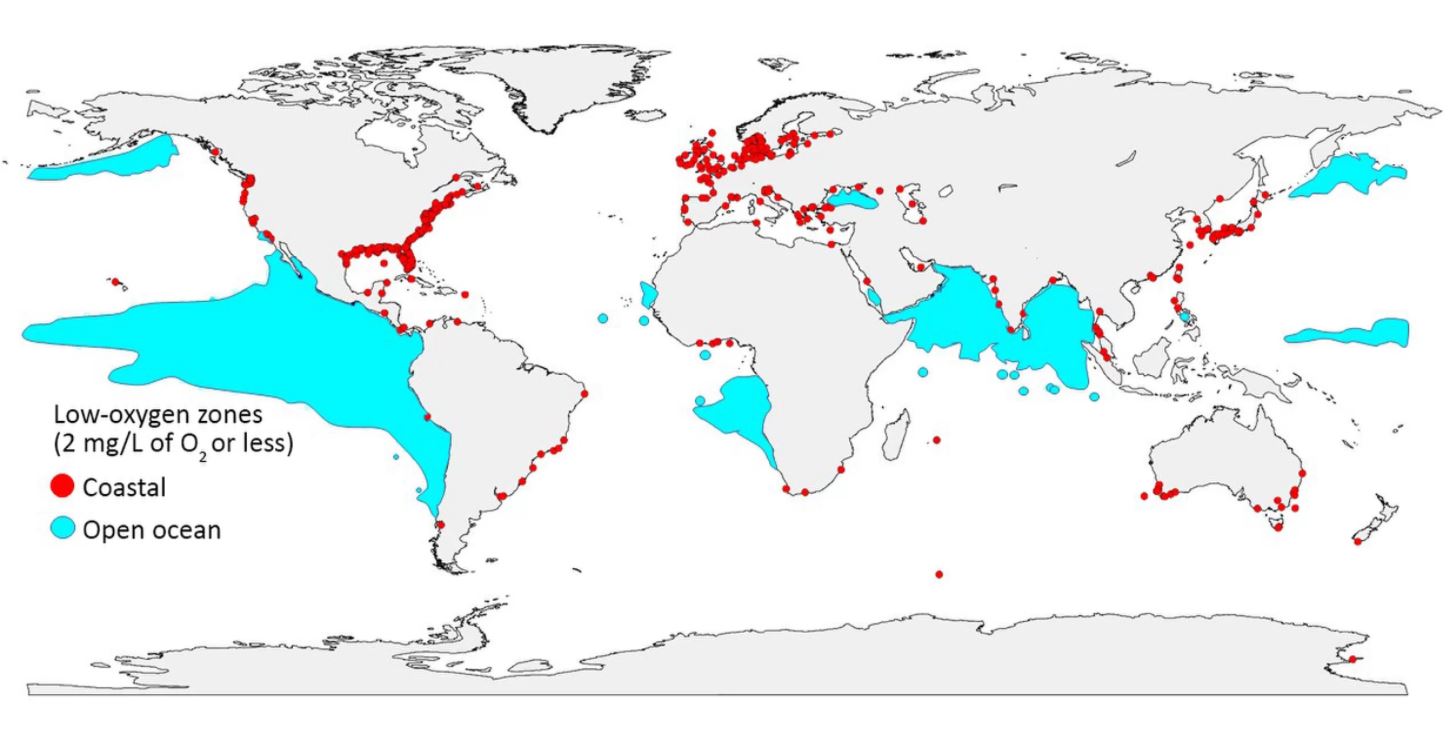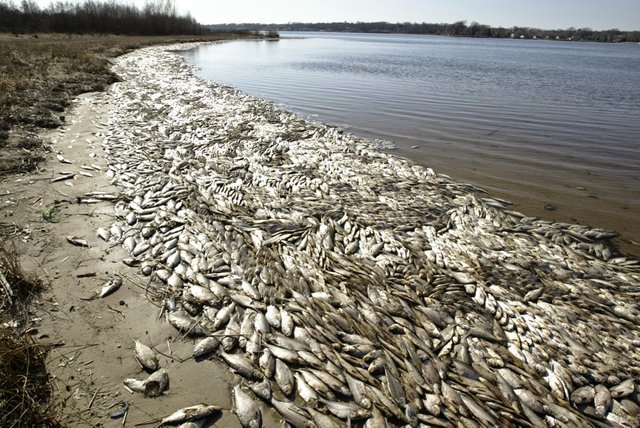Earth's Oceans Suffocating And Creating More 'Dead Zones': Study
Parts of the world's oceans with zero oxygen have increased up to four times according to a new study by an international team of scientists. This is problematic because it threatens the destruction of marine ecosystems and because a majority of the Earth's oxygen comes from the oceans.
Oxygen Depletion
Plastic pollution in the oceans and coral bleaching are the most talked about issues of late when it comes to the health of the planet's waters, but a lesser known issue that is equally problematic appears to be the depleting oxygen in the world's waters.
In fact, according to a new study, the bodies of water in the open ocean with zero oxygen have increased over fourfold in the last 50 years. What's more, the low-oxygen zones in coastal waters have evidently increased tenfold since 1950 and are expected to increase as the Earth continues to warm.
Marine Ecosystem Threatened In 'Dead Zones'
This is a serious problem for marine life because without oxygen, the marine life in a particular site could eventually die. The so-called dead zones become unable to support life, so both the animals and the corals end up suffocating. This is evident in the dead zones in the Gulf of Mexico and Chesapeake Bay.
In other areas where the oxygen is already low, marine animals' growth could be affected, as well as their reproduction and vulnerability to disease. Because the animals avoid these areas, many of them, including bigger fish such as marlins, remain in habitats where they become more vulnerable to predators and fishing.
The World's Oxygen And Nitrous Oxide
Low oxygen levels can evidently trigger the release of nitrous oxide, which is a greenhouse gas that is 300 times more powerful than carbon dioxide and hydrogen sulfide. According to researchers, climate change is the likely cause of the oxygen decrease in the open ocean, as warmer oceans hold less oxygen and even makes it hard for the oxygen to even reach the water in the first place.
Apart from the threat to marine biodiversity, it's also worth noting that about half of the oxygen on the planet comes from the ocean, which is an added problem to the damages to economy as a result of fish kills and tourism decline.
Solvable Problem
Despite the grim-sounding fate of our oceans, researchers note that there are things that people can do to tackle the problem head-on. For instance, reducing fossil fuel use could slash the air pollution and cut the greenhouse gases that contribute to climate change while addressing the water pollution problem could help as well.
What's more, the waters where the fish escape from low-oxygen areas could be protected further by turning them into marine protected areas or no-catch zones. Lastly, further and enhanced monitoring of the oxygen levels of the Earth's waters could help determine at-risk areas and possible effective solutions.
"Halting climate change requires a global effort, but even local actions can help with nutrient-driven oxygen decline," said Denise Breitburg of the Smithsonian Environmental Research Center, lead author of the study.
Source: http://science.sciencemag.org/content/359/6371/eaam7240